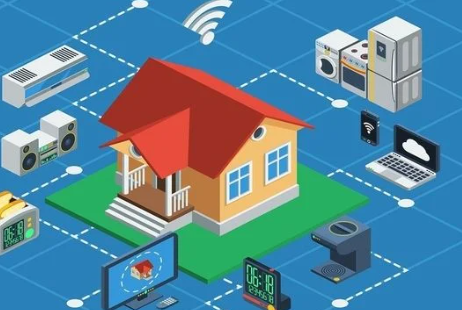The evolution of smart homes promises to reshape daily living significantly. With AI integration, homes will adapt to individual preferences, enhancing convenience and efficiency. Meanwhile, sustainability will drive innovations, leading to energy solutions that lower costs and environmental impacts. Security measures will also advance, providing unparalleled protection for homeowners. As these trends emerge, the implications for lifestyle and home management are profound and warrant further exploration.
The Rise of AI-Powered Home Automation
The rise of AI-powered home automation represents a significant shift in how individuals interact with their living spaces.
Voice assistants enable seamless communication, while predictive analytics enhance efficiency and personalization within homes.
This technology empowers users to optimize their environments, achieving greater comfort and convenience.
As AI continues to evolve, it promises to redefine autonomy in domestic settings, fostering a new era of freedom.
Eco-Friendly Innovations in Smart Home Technology
Smart home technology not only enhances convenience but also increasingly prioritizes sustainability.
Innovations such as smart appliances that optimize energy consumption play a pivotal role in reducing carbon footprints. Furthermore, the integration of solar energy systems allows homeowners to harness renewable power, significantly lowering utility bills.
These eco-friendly advancements empower individuals, promoting a lifestyle that values both modern convenience and environmental responsibility.
Read more: How 5G Technology is Transforming Communication Worldwide
Enhanced Security Features for Peace of Mind
As homeowners increasingly seek peace of mind, enhanced security features in smart homes have emerged as a critical component of modern living.
Innovations such as biometric access ensure only authorized individuals can enter, while remote monitoring allows residents to oversee their property in real-time from anywhere.
These advancements not only safeguard homes but also empower individuals, fostering a sense of freedom and control over their living environment.
Conclusion
As the dawn of smart homes approaches, the convergence of AI and sustainability resembles a symbiotic dance, harmonizing technology with nature. These homes, akin to modern-day castles, stand fortified against threats while nurturing the earth. With each innovation, the walls of traditional living dissolve, giving way to spaces that resonate with individual needs and environmental stewardship. The future promises not just smarter homes, but sanctuaries where comfort and responsibility coalesce, redefining the very essence of home.
